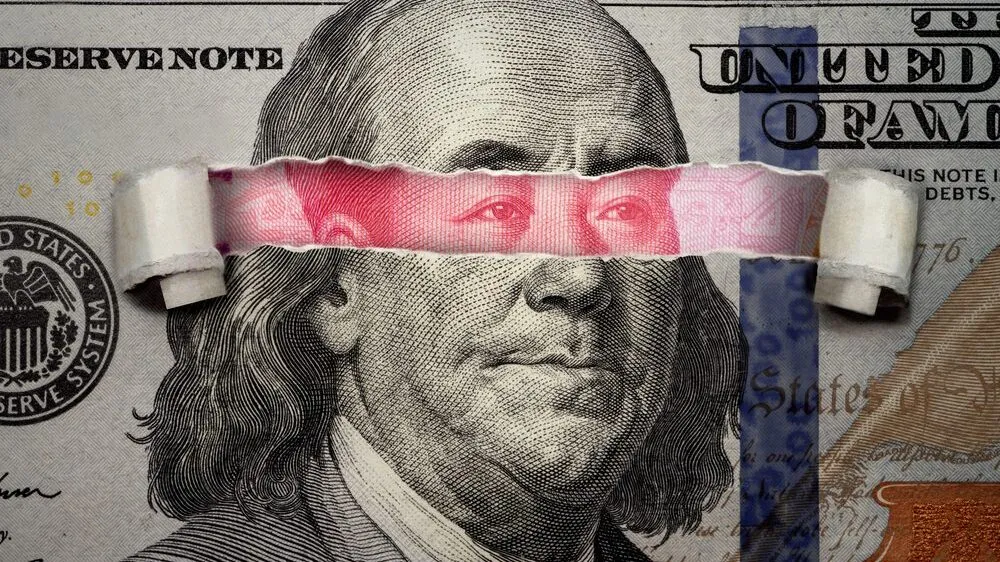The concept of achieving an ultimate consensus is an elusive endeavor, whether we're talking about topics as diverse as football, fitness, the economy, cryptocurrency, environmental concerns, or anything else. Subjectivity is deeply ingrained in our human nature, inevitably thwarting our pursuit of a universal agreement. To a certain extent, we manage to coexist and find common ground that serves us well.
Throughout history, conflicts born from disagreements and the misuse of power have consistently inflicted their consequences disproportionately upon the average person, rather than the world leaders responsible for inciting such conflicts. The US dollar, for the time being, remains both the world's reserve currency and a highly utilized medium of exchange across the entire planet.
We engage in trading oil, grain, coal, and nearly every imaginable commodity using dollars. This privileged status of the USD has granted the United States immense power and global influence. With the dollar holding such a dominant position, the US has wielded economic sanctions against multiple nations over the years, including Iran, Venezuela, and Russia. In the case of Russia, the US has utilized its authority to seize assets and possessions belonging to certain individuals holding Russian citizenship.

The sanctions levied against Russia since the commencement of the ongoing conflict have exerted an impact on all of us, to varying degrees. As you've undoubtedly observed, these sanctions have neither weakened Russia's military dominance nor brought an end to the war. It's an American proxy war, with the Ukraine at its center.
Paradoxically, Russia has managed to sell substantial quantities of oil to India, effectively sidestepping the impact of sanctions. Much of this oil has subsequently been resold to other nations around the globe for profit. Remarkably, the countries ostensibly imposing sanctions on Russia through embargoes are, in fact, purchasing Russian oil at premium rates. A shrewd maneuver, if I might say, albeit one that inflicts suffering upon us due to their excessive egotism.
While some Americans remain reluctant to acknowledge this reality, the US dollar is presently undergoing a process of de-dollarization, primarily driven by the recent dynamics within the BRICS alliance. It's evident that sanctions can only persist for a limited duration. Now, let's delve into the question: What exactly is BRICS? For those who might not yet be familiar with this term...
BRICS is an acronym that represents a group of five major emerging economies: Brazil, Russia, India, China, and South Africa. These nations, collectively known as BRICS, have formed a cooperative alliance to promote economic growth, development, and influence on the global stage.
The BRICS countries are characterized by their significant populations, large land areas, and expanding economies. The alliance was established with the aim of enhancing their collective bargaining power in international forums and fostering closer cooperation on economic, political, and cultural matters.
The BRICS nations hold annual summits where their leaders discuss a wide range of issues, such as trade, investment, technology, sustainable development, and geopolitical matters. The group seeks to provide an alternative voice and perspective to the Western-dominated international order and to promote a more balanced global economic and political landscape.

During their most recent annual summit, the BRICS alliance welcomed six new members into its fold: Argentina, Egypt, Ethiopia, Iran, Saudi Arabia, and the UAE. Iran, in particular, must find reason to celebrate its inclusion in the BRICS alliance, following the extensive hardships it endured due to the harsh sanctions imposed by the US. Among the newcomers, the one that truly captures my excitement is the UAE.
Consider the prospect of Russia and the UAE initiating global oil trade utilizing a currency other than the US dollar. While discussions about BRICS introducing a new currency have not yet surfaced, I'm of the opinion that the dollar is poised for significant upheaval. Its dominance is waning, and the proxy conflict in Ukraine has further strained its influence.
America undoubtedly holds superpower status, yet it's unwise to underestimate the formidable positions of Russia, China, India, and the UAE. I envision revisiting this post in the future, a time when BRICS may potentially unveil a new currency for international settlements, one that poses a substantial threat to the dollar. My intuition strongly suggests that this revelation is forthcoming in the years ahead, perhaps even sooner. Putin appears genuinely invigorated by the progression of the de-dollarization process, and it's no wonder.
Thanks for your attention,
Adrian